Our customers love us!
We are proud of the products we offer and the high standard of customer service we deliver. Our customers love us so much they give us a customer rating of 4.8 out of 5!
After a cold and snowy winter, spring is finally here! The weather is warmer, the days are longer and daffodils are popping up all over the country – so what better excuse to get your gardening gloves on and make a start on growing your own vegetables? Today I’m talking about the best plants to sow in Spring – but don’t worry, you don’t need a big garden or extensive gardening knowledge to get started!
Spring is finally here, so it’s the perfect time to get out and get planting! Plants need warmth and light to grow and produce edible fruits and vegetables, and the warmer weather and longer days that come with spring provides both of these things. Plant them earlier and the frost could kill them before they get the chance to grow into plants, but plant them too late and they won’t have enough sunny months to produce edible fruits and vegetables before the weather starts to cool down again.
While some plants such as strawberries are actually best planted over winter, the majority are best planted during the spring months.
Absolutely not! Plants need good soil, warmth, sunshine and water to grow strong and healthy so as long as you can provide these key elements, there are plenty of plants you can grow. Lots of vegetables can be grown in pots, bags, hanging baskets or even old welly boots. Herbs and salads are especially easy to grow when outdoor space is limited, but with a bit of innovation you can grow almost anything!
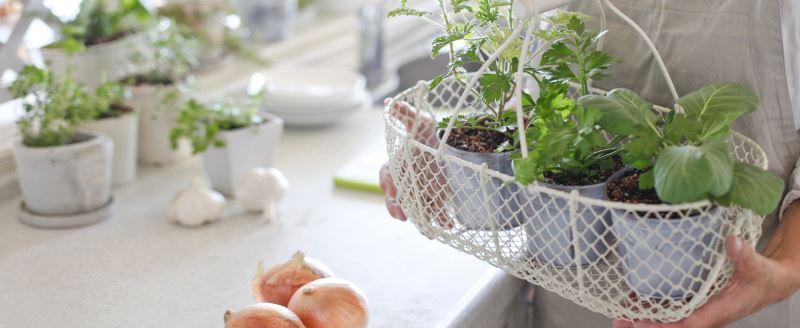 So if you want to get started right away, here are my favourite plants to sow in Spring.
So if you want to get started right away, here are my favourite plants to sow in Spring.
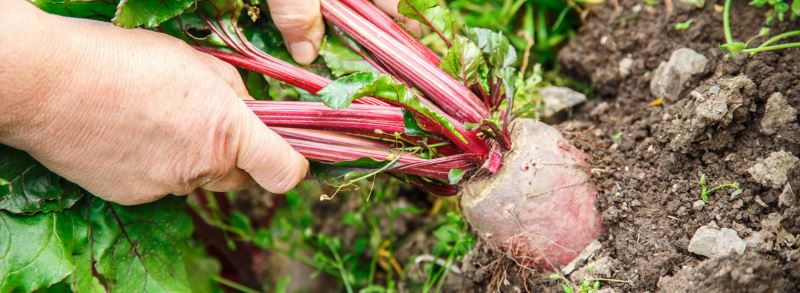 Why? This sweet, bright purple vegetable has loads of great health benefits and is delicious in soups, stews, smoothies and even cakes!
Why? This sweet, bright purple vegetable has loads of great health benefits and is delicious in soups, stews, smoothies and even cakes!
When? They can be sown any time from March onwards and their roots are ready to harvest in 7 to 12 weeks.
How? Dedicate a small corner of your garden to these root vegetables, or plant in a pot that’s around 30cm deep. They like their space, so don’t overcrowd them!
Read our guide to growing beetroot for more information.
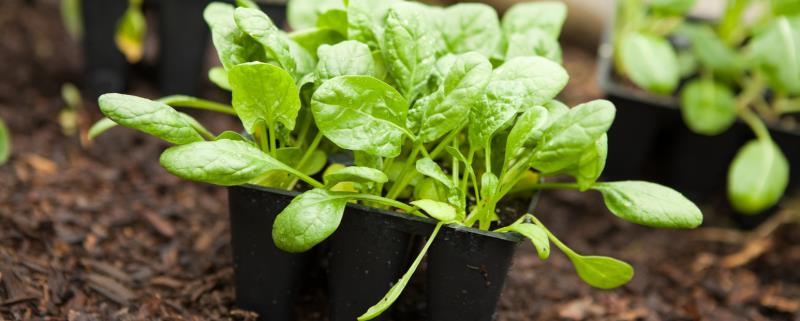 Why? These leaves are packed full of vitamins and minerals and are super easy to grow. They are really easy to throw into salads, curries, pastas and even smoothies.
Why? These leaves are packed full of vitamins and minerals and are super easy to grow. They are really easy to throw into salads, curries, pastas and even smoothies.
When? Sow these in early spring and they’ll be ready to eat by the summer!
How? Sow outside in a small, sunny area of your garden, or plant in pots or window boxes. They don’t need huge amounts of space so you can grow these in fairly shallow containers – just make sure not to plant too many too close together.
Read our guide to growing spinach for more information.
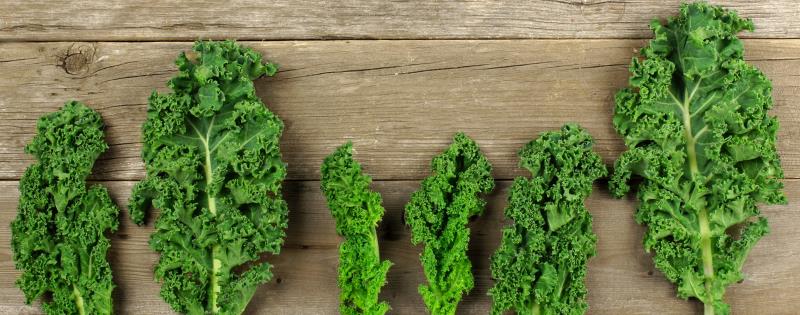 Why? Kale is part of the cabbage family, and it’s packed full of nutrients with a really distinct flavour. Just steam until wilted and stir in some butter or garlic oil for a delicious side.
Why? Kale is part of the cabbage family, and it’s packed full of nutrients with a really distinct flavour. Just steam until wilted and stir in some butter or garlic oil for a delicious side.
When? Sow these in early spring for a summer harvest.
How? Like most salad plants, these are happy to grow in pots or hanging baskets in a warm, sunny spot. They can grow surprisingly large, so make sure to plant them in a larger pot.
Read our guide to growing kale for more information.
 Why? These are a staple veg that many people buy on a weekly or monthly basis anyway – so why not grow your own instead? They’re easy to add to almost any meal and are packed full of healthy goodness.
Why? These are a staple veg that many people buy on a weekly or monthly basis anyway – so why not grow your own instead? They’re easy to add to almost any meal and are packed full of healthy goodness.
When? Sow in Spring and they’ll be ready in 12-16 weeks
How? Carrots grow well in the garden, but you can also grow them in a window box, provided it’s at least 30cm deep!
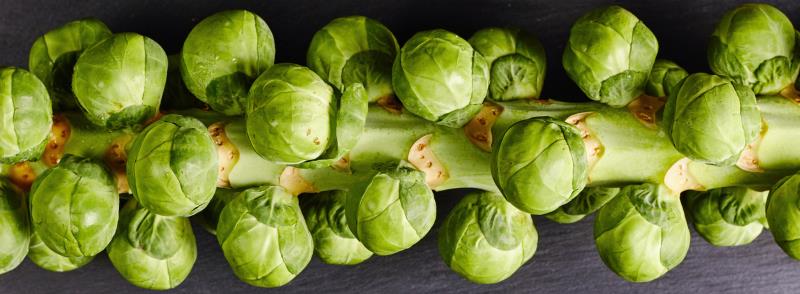 Why? Don’t believe the lies about Brussels sprouts – these little vegetables are so delicious when cooked correctly! Be careful not to overboil them, and make sure to stir in a little butter, salt or herbamare for an extra-tasty treat.
Why? Don’t believe the lies about Brussels sprouts – these little vegetables are so delicious when cooked correctly! Be careful not to overboil them, and make sure to stir in a little butter, salt or herbamare for an extra-tasty treat.
When? Sow between late March and mid-April and harvest between September and March.
How? Brussels sprouts grow on large plants so are happiest outside in a garden. However, each plant tends to yield a lot of sprouts, so you don’t need to sacrifice your whole garden! Just pick a sunny corner and plant a few.
Don’t be too ambitious!
Turning your garden into a fully-fledged allotment with enough vegetables to feed a family all year is a lot to take on all at once. Think about how much available space you have and how many people you’re feeding – you don’t want to end up with more vegetables than you can possibly think about eating! Pick a few of your favourite vegetables and plant a sensible amount of seeds – remember that salad plants tend to grow back as you pick them, as long as you don’t remove too many leaves!
Prepare your soil
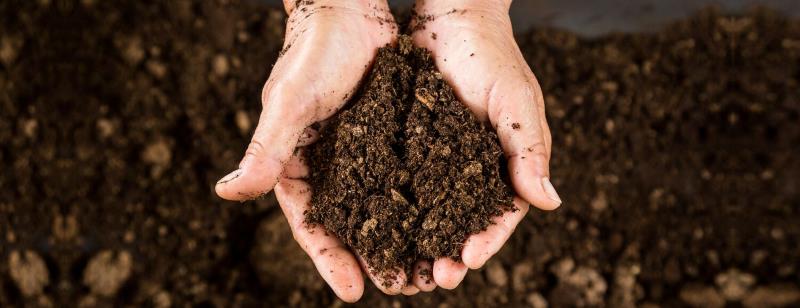 Next, make sure your soil is suitable for the plants you want to grow. Before you sow your seeds, check what pH they like. The plants listed above favour a slightly acidic soil, between 6 and 7. You can buy a pH testing kit online for less than £10.
Next, make sure your soil is suitable for the plants you want to grow. Before you sow your seeds, check what pH they like. The plants listed above favour a slightly acidic soil, between 6 and 7. You can buy a pH testing kit online for less than £10.
Don’t forget about compost! Compost can help to alter the pH of the soil, and also increase the nutrients in your soil. You can either buy this online, or you can make your own using a compost bin (this will take several months, but it’s a good investment for next year!). Just mix one part compost with two parts garden soil to make a good healthy mixture.
You can use an all-purpose vegetable compost for most plants, though small seeds such as salads and herbs would prefer to grow in a special seed compost first, before being transferred to all-purpose compost, whether in a pot or the garden.
Remember to look out for organic compost and fertiliser if you want to avoid nasty chemicals.
Picking the right container
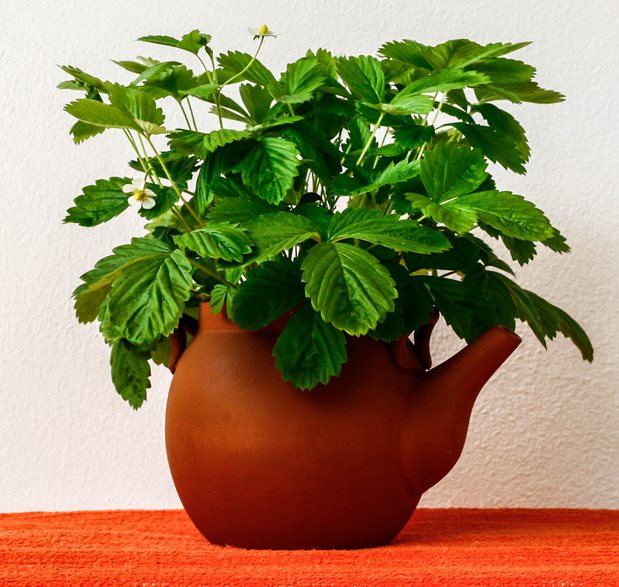 If you’re growing plants in containers, make sure these have holes in the bottom to allow water to drain. To avoid getting water all over your kitchen, either place the pot on a plate, or inside a larger pot that has no holes – just place some rocks at the bottom to prop the smaller pot up and allow water to drain. I like to slot a small plant pot into an old teapot, so get creative!
If you’re growing plants in containers, make sure these have holes in the bottom to allow water to drain. To avoid getting water all over your kitchen, either place the pot on a plate, or inside a larger pot that has no holes – just place some rocks at the bottom to prop the smaller pot up and allow water to drain. I like to slot a small plant pot into an old teapot, so get creative!
If you don’t have the time or the space to grow plants, then sprouts might be the thing for you. Our BioSnacky Sprouts can be sown any time of year and are so easy to grow – they don’t even need soil! Just spread the seeds out on one of our Seed Sprouters, water twice a day, and you’ll have ready-to-eat sprouts in just a few days. They’re nutrient-dense and delicious, with a little crunch – perfect for salads, topping pastas or adding to sandwiches.
I love the superfood pack because it contains a great mix of delicious sprouts, including broccoli, red clover and mung bean.
We are proud of the products we offer and the high standard of customer service we deliver. Our customers love us so much they give us a customer rating of 4.8 out of 5!
Our Herbamare combines herbs and vegetables with a little sea salt to create a delicious, healthy seasoning for any dish!
Join Hetty and Martin in the A.Vogel gardens to improve your flexibility.
Carbohydrates have a bad reputation, but eating the right kinds can actually be great for weight management!
Alfred Vogel's guide to leading a healthy and happy life
Get new recipes in your inbox every week. Sign up now
No Comments
Add your comments
Your email address will not be published. All fields are required.
35312